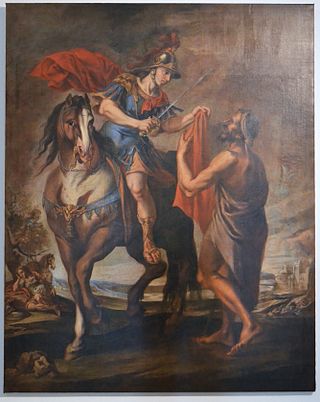
Adrian is a form of the Latin given name Adrianus or Hadrianus. Its ultimate origin is most likely via the former river Adria from the Venetic and Illyrian word adur, meaning "sea" or "water".
January 11 is the 11th day of the year in the Gregorian calendar; 354 days remain until the end of the year.
March 4 is the 63rd day of the year in the Gregorian calendar; 302 days remain until the end of the year.
Alec or Aleck is a Scottish form of the given name Alex. It may be a diminutive of the name Alexander or a given name in its own right. Notable people with the name include:

Adam is a common masculine given name in the English language, of Hebrew origin.
Cole is a surname of English origin, and is also now used as a given name. It is of Middle English origin, and its meaning is "swarthy, coal-black, charcoal".
The surname Collins has a variety of likely origins in Britain and Ireland:
- English and Scottish: A patronymic surname based on the English and Scottish name Colin, an English diminutive form of Nicholas.
- Norse: From the Old Norse personal name "Kollungr", a form of "koli" which in Old English became 'Cola', meaning swarthy or dark.
- Irish: The medieval surname was Ua Cuiléin, which has usually become Ó Coileáin today.
- Welsh: Collen; "hazel, hazel grove".
Gavin is a male given name originating from Scotland. It is a variation on the medieval name Gawain, meaning "God send" or "white hawk". Sir Gawain was a knight of King Arthur's Round Table. Sir Gawain and the Green Knight is an epic poem connected with King Arthur's Round Table. Gawain beheads the Green Knight who promptly replaces his head and threatens Gawain an identical fate the same time next year. Decapitation figures elsewhere: the Italian name Gavino is the name of an early Christian martyr who was beheaded in 300 AD, his head being thrown in the Mediterranean Sea only later reunited and interred with his body.
Damien is a given name and less frequently a surname.

Aaron is a Hellenized Hebrew masculine given name. The 'h' phoneme in the original Hebrew pronunciation "Aharon" (אהרן) is dropped in the Greek, Ἀαρών, from which the English form, Aaron, is derived.
Shane is mainly a masculine given name. It is an anglicized version of the Irish name Seaghán/Seán, which itself is cognate to the name John. Shane comes from the way the name Seán is pronounced in the Ulster dialect of the Irish language, as opposed to Shaun or Shawn.

Martin may either be a given name or surname. In Scotland, Martin or McMartin is a common surname of Scottish Gaelic origin. Martin is, however, more common as a masculine given name in many languages and cultures. It comes from the Latin name Martinus, which is a late derived form of the name of the Roman god Mars, protective godhead of the Latins and, therefore, god of war. The meaning is usually rendered in reference to the god as "of Mars", or "of war/warlike" ("martial").

Kelly is a surname in the English language. The name has numerous origins, most notably from the Ui Maine. In some cases it is derived from toponyms located in Ireland and Great Britain, in other cases it is derived from patronyms in the Irish language.
Russell, also Rosel, Rousel, Russel or Rossell. The origin of the name has historically been subject to disagreement, with two distinct origins proposed. Early genealogists traced the Russel/Russell family of Kingston Russel from Anglo-Norman landholders bearing the toponymic surname 'de Rosel' or 'du Rozel', deriving from Rosel, Calvados, Normandy. However, J. Horace Round observed that these flawed pedigrees erroneously linked toponymic-bearing men with unrelated men who instead bore the Anglo-Norman nickname rus[s]el, given men with red hair. This nickname was a diminutive of the Norman-French rus, meaning 'red', and was also an archaic name for the red fox, which in turn borrowed from Old Norse rossel, "red-haired, from Old Norse ros "red hair color" and the suffix -el. Round concluded "there is no reason to suppose that the surname Russell was territorial at all," and surname dictionaries have preferred to derive the surname from the nickname. Dictionaries also state that the English name Rufus originally meant "red haired".

Oliver is a masculine given name of Old French and Medieval British origin. The name has been generally associated with the Latin term olivarius, meaning "olive tree planter", or "olive branch bearer" Other proposed origins include the Germanic names *wulfa- "wolf" and *harja- "army"; the Old Norse Óleifr ; a genuinely West Germanic name, perhaps from ala- "all" and wēra "true" ; the Anglo-Saxon Alfhere; and the Greek name Eleutherios.
Webb is an English and Scottish surname meaning weaver of cloth.
Tracy, as a British personal name, was originally adopted from Norman surnames such as those of the family de Tracy or de Trasci from Tracy-Bocage in Normandy, France. Derived from the Gaulish male name Draccios, or Latin Thracius, and the well-identified Celtic suffix -āko, such Norman surnames themselves sprung from several Tracy place-names in France.
Trent is a surname and a male given name, and means "the flooder". It is generally associated with the River Trent, a river in Britain. It may also be a short form of the given name Trenton.
This page is based on this
Wikipedia article Text is available under the
CC BY-SA 4.0 license; additional terms may apply.
Images, videos and audio are available under their respective licenses.




